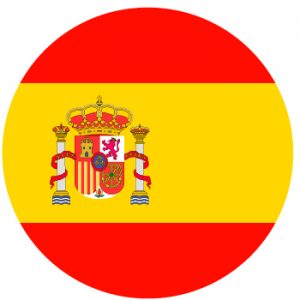
The Longest Word in Spanish: Just How Long is It?
Learn Spanish Words
The Spanish language is one of the most widely spoken in the world, so it’s no surprise that there are some pretty long words in Spanish! Spanish may seem simple because you have many cognates with English, but it has some hidden complexities when it comes to its pronunciation and even its grammar. And when it comes to the longest word in Spanish, things get fascinating…
About the Spanish Language
The Spanish language is a Romance language that originated in the Iberian Peninsula. It is the second most natively spoken language in the world, with over 460 million speakers. The longest word in Spanish, according to the major dictionaries, is Esternocleidooccipitomastoideos, a 31 letter word for a muscle in the human neck.
While agglutinative languages like Maori and Turkish can create even longer words, these are not found in everyday language usage.
For Spanish speakers, knowing the longest word can be a fun way to impress others with their knowledge of the language. Yet, for those who study medical terms or specific English terms, this word may not come up often enough to memorize it without consulting a dictionary.
And the same goes for any other technical term you might need to know. In fact, many times, people will use what they know as slang instead of spelling out a technical term when speaking casually.


The Longest Word in Spanish
According to the Spanish dictionary, the longest word is Esternocleidooccipitomastoideos, which means relating to the sternocleidomastoid muscle. This 31-letter word is actually an adverbial form of the Sternocleidomastoid muscle, which is a neck muscle.
Its definition, according to the English Dictionary, reads as follows: relating to or being the sternocleidomastoid muscle. The vernacular term for this long word translates into nerve that runs from just below the ear to the breastbone, and it is also known as one of the large muscles of mastication. You must know this: Top 10 Spanish English Dictionaries?
A synonym for this long word is sternocelessternoideus, meaning relating to or being part of both parts of the trapezius muscle. Some people may say this word is too much or complex, but there are many other words in Spanish with more than 25 letters.
Is there a longer word in any other language?
The longest word in the Maori language is takatakahia, which means to interpret electroencephalograms. The longest word in English is the 27-letter mary poppins, meaning a complex answer to a simple question. However, the longest word in Spanish is the 29-letter anticonstitucionalmente, meaning in an unconstitutional manner.
A 45-letter word in Spanish is
sardinotuertascooplerineskerpiklerpilokalekaleskiyobocokunikomiozaniskiomiozaniskekuya.
Is this a useful word to know or just an intellectual curiosity?
If you’re interested in learning the longest word in Spanish, the answer is Esternocleidooccipitomastoideos. This 31-letter word refers to a muscle in the neck. However, it’s not a particularly useful word to know since it’s not one that you’ll encounter often.
If you’re looking for a longer word that you might actually use, the longest common word is anticonstitucionalmente, which has 27 letters. While it’s still a mouthful, at least you might actually hear it used from time to time.


Spanish Language
If someone were asking about esternocleidooccipitomastoideos and wanted an easy way to remember what this means, we could break it down as follows:
sterno-=chest/upper back; cleido-=neck; occipito-=back of head; mastoid-=large bone behind ear; otos-=ear . Ultimately, whether or not you choose to learn these long words is up to you. But they can be fun to know and can impress your friends with your vast knowledge of the Spanish language!
As we said before, the question of whether or not you want to learn these words is entirely up to you. One way that may make it easier for you would be by breaking them down into simpler terms. But like most medical terms, there are abbreviations used instead so the full word is rarely used in daily life.
